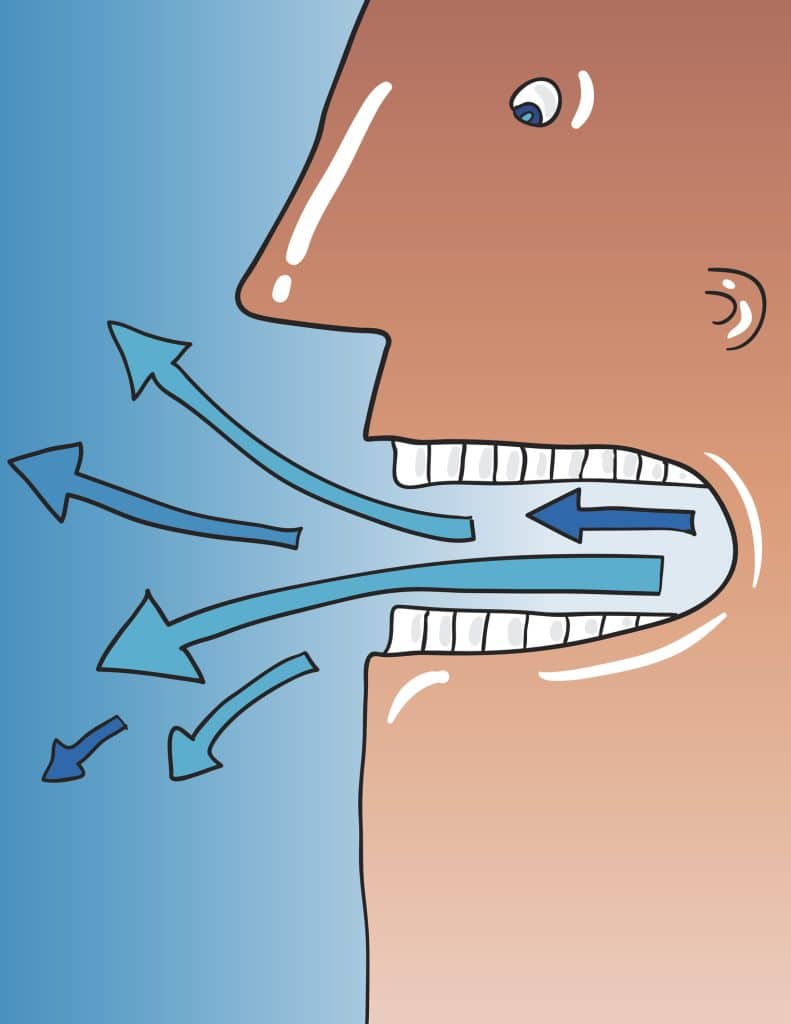
While it’s possible to breathe through your mouth, and plenty of people do precisely that, the question is should you breathe through your mouth? And the answer to this is an emphatic NO!
Mouth breathing is simply having the mouth open while breathing. Even with the mouth slightly open, where you are not obviously inhaling and exhaling through your mouth, this is still considered mouth breathing and harms your health. The Buteyko Breathing Technique retrains your breathing patterns so that nasal breathing becomes your default, permanently reversing mouth breathing.
We are born to breathe using our nose and diaphragm or belly breathing. A baby’s breathing is soft, gentle and deep. By the time we are adults, many people’s breathing has changed to mouth, shallow and chest breathing. More than 20% of adults are mouth breathers.
Mouth breathers exhale excess amounts of Carbon Dioxide (CO2). Every cell in the body creates CO2 in the production of energy. We need to eliminate a certain amount of CO2, but at the same time, too little CO2 causes its own problems.
The optimal amount of CO2 in the body is regulated by nasal breathing. Optimal CO2 levels
You can tape the mouth shut with surgical paper like micropore, which will undoubtedly make a difference. However, this will only temporarily stop the symptom of over-breathing, snoring, and potentially sleep apnoea. When you stop using the tape, the snoring will return. As our daytime breathing influences our nighttime breathing, it is imperative to retrain your breathing patterns. This can be done with the Buteyko Breathing Technique, which can help pivot your breathing patterns towards functional, easy and calm.
When the mouth is open, the chin and jaw drop backwards, negatively affecting many’s facial appearances. Additionally, there is a correlation between mouth breathing and poor academic performance.
Mouth breathing during childhood affects facial development, leading to a ‘weak chin’, enlarged nose and misaligned teeth. While the best time to change this trajectory is during childhood and adolescence, it is possible to make some changes to facial appearance. Some dentists recommend dental appliances that help widen the upper palate, even in adulthood.
The nose is intended for breathing and smelling, and the mouth is designed for speaking, eating, singing and kissing! There are many benefits to nose breathing and many risks to mouth breathing. Learning the Buteyko Breathing Technique helps you return to optimal breathing. You are reversing the harmful effects of mouth breathing.